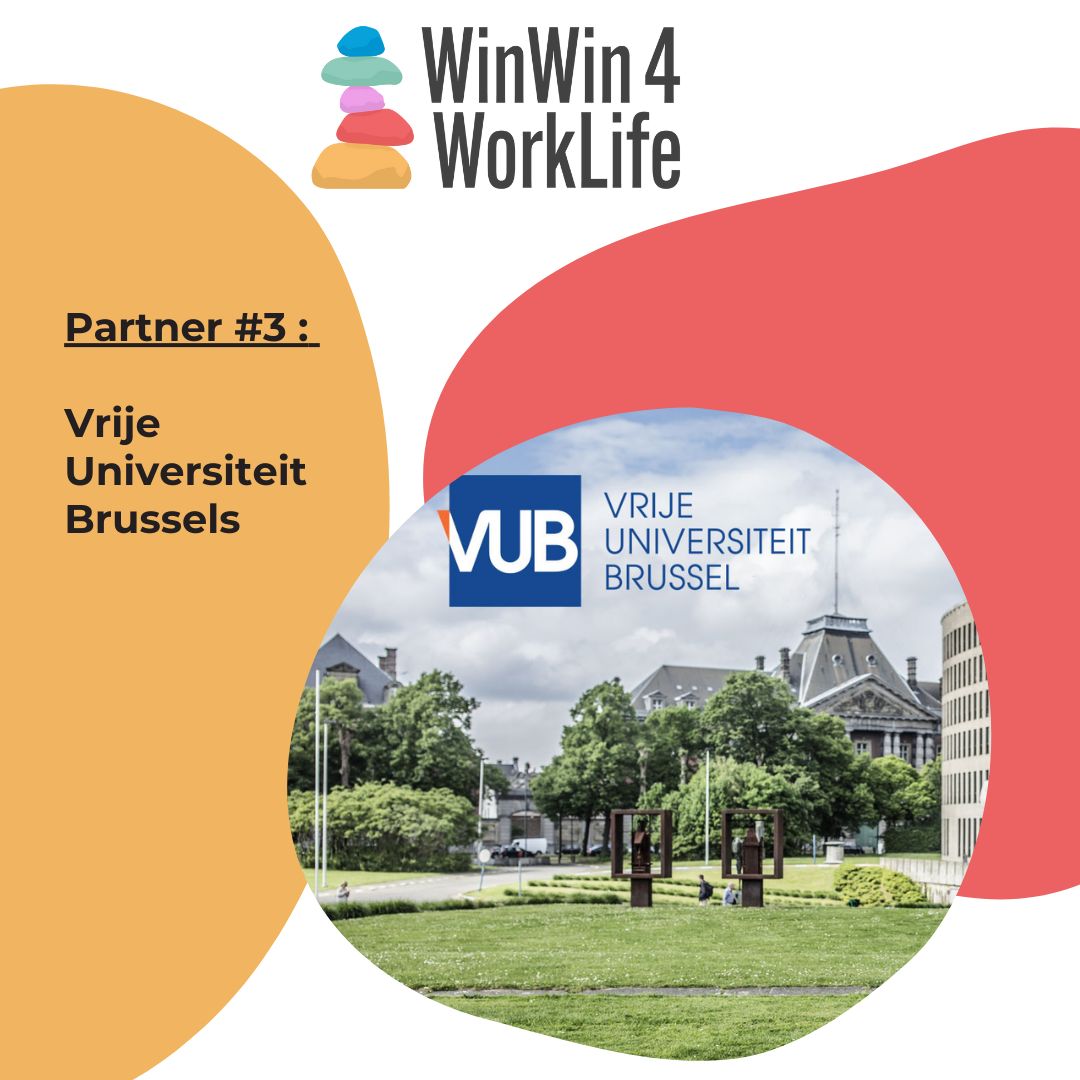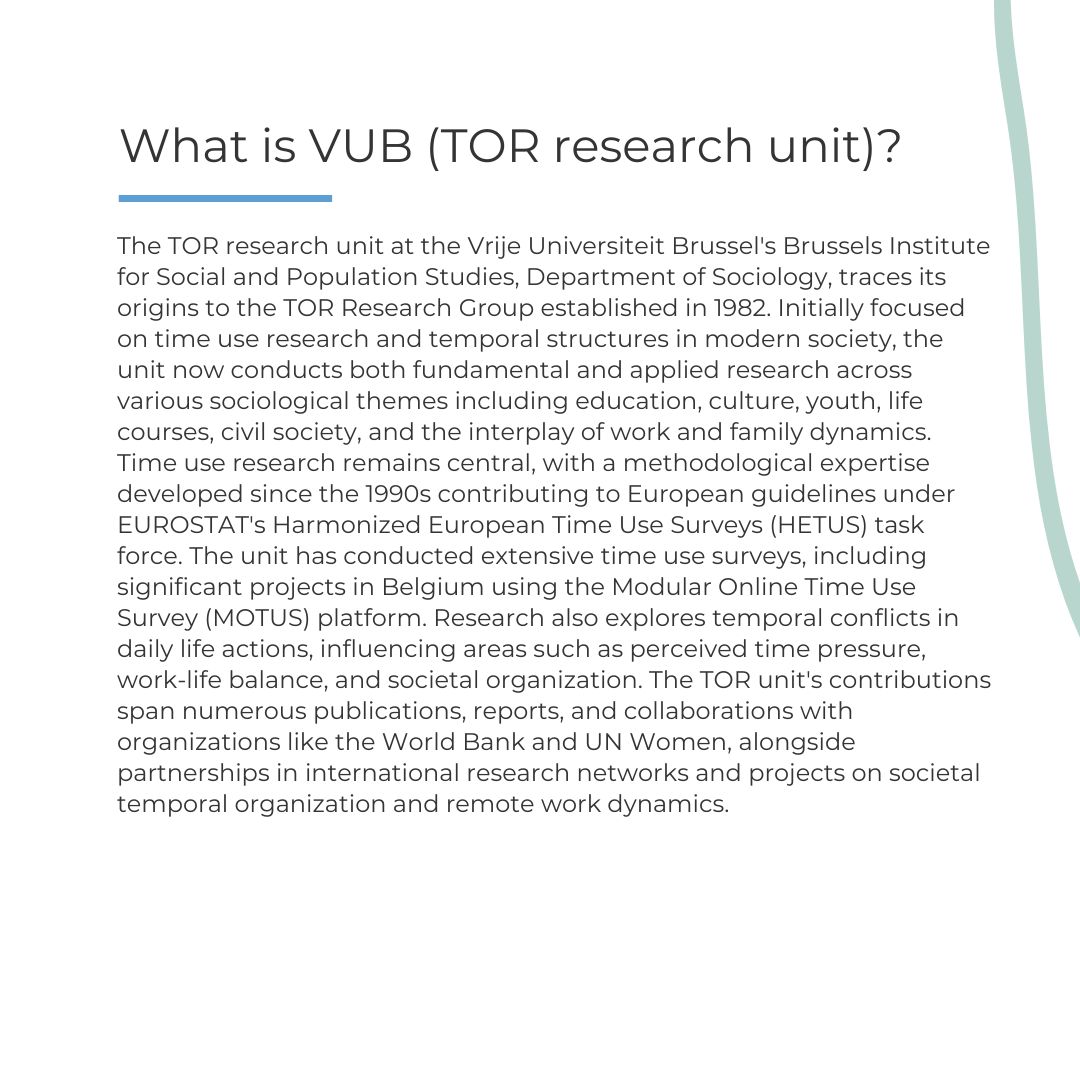Partner Spotlight 3/15: Vrije Universiteit Brussel (VUB)
We are thrilled to introduce our coordinating organisation, the Vrije Universiteit Brussel (VUB). 🌍✨
About VUB
The TOR research unit within the Brussels Institute for Social and Population Studies at Vrije Universiteit Brussel‚s Department of Sociology is renowned for its research on time use and temporal structures. Established in 1982, the TOR unit explores sociological themes such as education, culture, youth, life courses, and the balance between work and family life. The unit excels in both fundamental and applied research and has significant methodological expertise in measuring and analyzing time use.
VUB’s role in WinWin4WorkLife
In the WinWin4WorkLife project, the TOR research unit leads the study on the time impacts of remote working arrangements (RWA) on work-life balance and quality of time use. They contribute to developing a web questionnaire and time diary for employees, analyzing remote working experiences in terms of frequency, flexibility, work-life balance, health, and well-being.
Remote Work Experience
Francisca Mullens from VUB shares her remote work experience:
„I practice hybrid working, typically working from home one or two days a week. During the COVID-19 pandemic, full-time remote working as a PhD felt isolating at times. However, hybrid work offers a balance, allowing for both productivity and personal well-being.“
Francisca Mullens
𝗦𝘁𝗮𝘆 𝘁𝘂𝗻𝗲𝗱 𝗮𝘀 𝘄𝗲 𝗰𝗼𝗻𝘁𝗶𝗻𝘂𝗲 𝘁𝗼 𝗶𝗻𝘁𝗿𝗼𝗱𝘂𝗰𝗲 𝗺𝗼𝗿𝗲 𝗼𝗳 𝗼𝘂𝗿 𝗮𝗺𝗮𝘇𝗶𝗻𝗴 𝗽𝗮𝗿𝘁𝗻𝗲𝗿𝘀!
#𝗪𝗶𝗻𝗪𝗶𝗻𝟰𝗪𝗼𝗿𝗸𝗟𝗶𝗳𝗲 #𝗥𝗲𝗺𝗼𝘁𝗲𝗪𝗼𝗿𝗸 #𝗥𝗲𝘀𝗲𝗮𝗿𝗰𝗵 #𝗖𝗼𝗹𝗹𝗮𝗯𝗼𝗿𝗮𝘁𝗶𝗼𝗻 #𝗟𝗜𝗦𝗘𝗥


